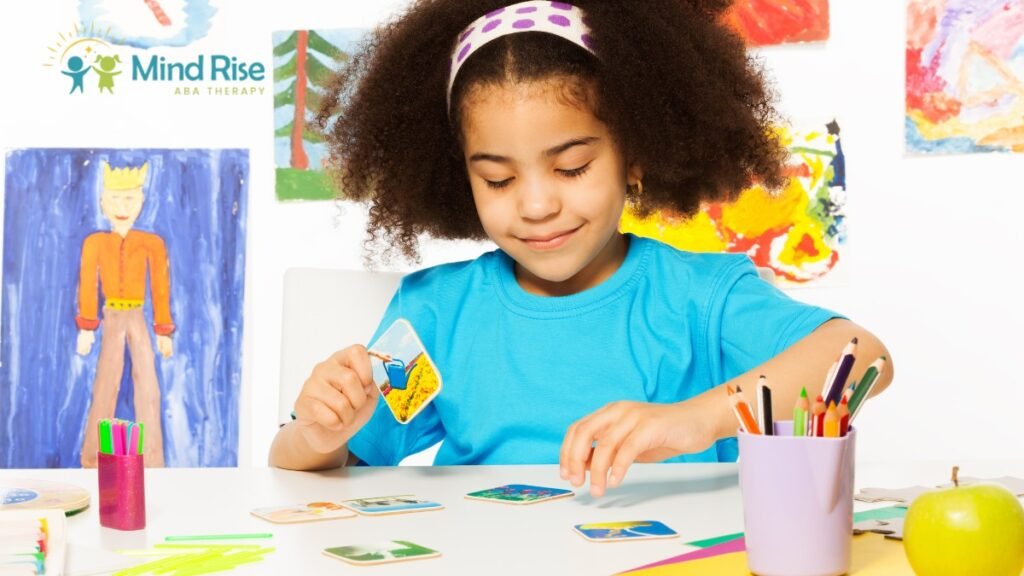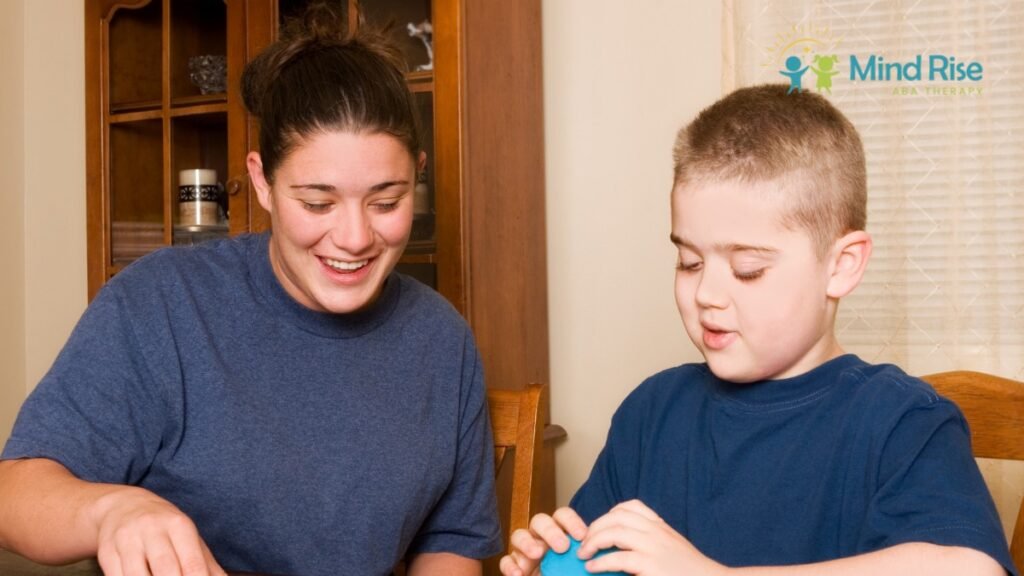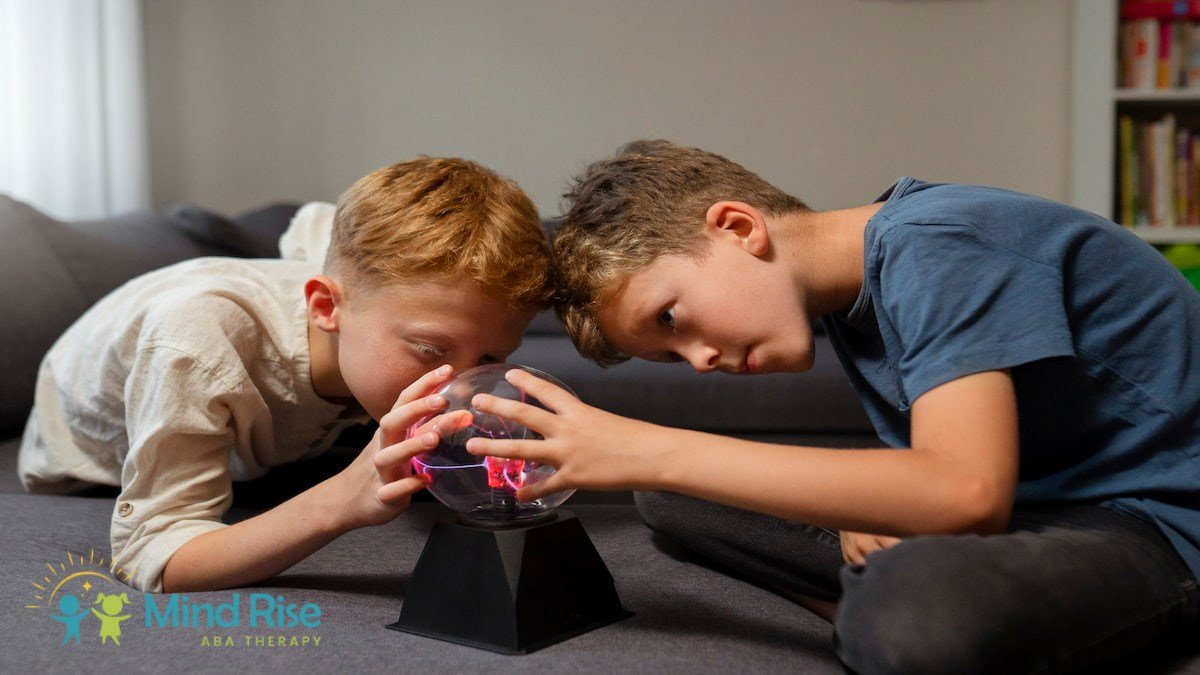Key Points:
- ABA therapy focuses on building meaningful skills and reducing behaviors that may interfere with daily life.
- In Virginia, families are turning to ABA providers like Mind Rise ABA for flexible, in-home therapy services tailored to their child’s needs.
- Understanding the process, benefits, and structure of ABA therapy helps parents make informed decisions for their child’s support and development.
When your child receives an autism diagnosis, the flood of next steps can feel overwhelming. You’re suddenly navigating terms you’ve never heard, making big decisions under pressure, and trying to do what’s best with limited time to figure it all out.
One of the most common therapies recommended for children on the autism spectrum is Applied Behavior Analysis, or ABA. If you’re in Virginia and wondering what ABA therapy is, how it works, or whether it’s the right fit for your child, you’re not alone. Many parents across the state are starting this journey too—and ABA therapy providers in Virginia like Mind Rise ABA are here to walk with you.
This guide is built for you: the parent at the start of this process who wants clear, honest answers—without the jargon.
What Is ABA Therapy, Really?
Let’s start with the basics. Applied Behavior Analysis (ABA) is a therapy based on the science of learning and behavior. It helps children learn how behavior works, how behavior is affected by the environment, and how new behaviors can be developed or reinforced.
But put more simply, ABA therapy helps children build useful life skills while reducing behaviors that might be limiting their independence or learning.
It’s used to teach everything from:
- Communicating needs effectively
- Following directions
- Improving social interactions
- Reducing challenging behaviors like aggression or self-injury
- Building daily living skills like dressing or brushing teeth
ABA is structured and data-driven, but it’s also deeply personalized. It’s not a one-size-fits-all approach. Each plan is crafted specifically around your child’s strengths, challenges, and goals.
The Key Components of ABA Therapy
Before jumping into sessions, it helps to understand how ABA is structured and what to expect.
Here are the core pieces:
1. Assessment and Goal Setting
Every ABA journey starts with an in-depth assessment. A Board Certified Behavior Analyst (BCBA) will meet with you, observe your child, and gather information through interviews, questionnaires, and direct testing. This assessment forms the foundation of the treatment plan.
Expect goals that are:
- Behavior-specific and measurable
- Centered on real-life outcomes (like tolerating haircuts or using words instead of meltdowns)
- Regularly updated based on progress
2. Individualized Treatment Plan
There’s no template for ABA plans. Your child’s treatment is designed around their unique needs. This could include language development, play skills, coping strategies, or behavior reduction.
Plans are broken down into small, teachable steps—often with prompts, reinforcement, and lots of repetition.
3. Therapy Sessions
Sessions are typically carried out by a Registered Behavior Technician (RBT) under the supervision of a BCBA. Depending on your child’s needs and insurance approval, therapy might range from 10 to 40 hours per week.
Sessions can happen:
- In the home
- At school or daycare
- In the community (e.g., practicing grocery shopping skills)
At Mind Rise ABA, we focus heavily on in-home therapy, which makes it easier for children to learn skills in the setting where they’re used every day.
4. Family Involvement
One of the strengths of ABA is its emphasis on caregiver training. You’ll be taught how to use the same techniques therapists do, so your child gets consistent support—no matter who’s helping.
How ABA Therapy Helps Children with Autism

If you’re wondering what kind of real-world difference ABA therapy can make, here are some of the areas where it can be most impactful:
Communication Skills
ABA helps children learn to express themselves in ways that work for them—whether that’s spoken language, sign language, or a communication device. Therapists teach skills like requesting, labeling, and answering questions.
Social Development
Many children on the spectrum struggle with social cues. ABA teaches things like turn-taking, eye contact, sharing, and even how to initiate play with peers.
Behavior Reduction
If your child engages in behaviors that are harmful or disruptive, ABA can help identify what’s triggering those behaviors and teach more appropriate alternatives.
Self-Help and Independence
From brushing teeth to packing a backpack, ABA builds life skills that increase your child’s independence over time.
School Readiness
Many families in Virginia seek ABA therapy to help prepare their children for school environments. Therapists can work on sitting for longer periods, following classroom routines, and managing transitions.
What to Look For in an ABA Provider in Virginia
Choosing the right provider is a big decision. Here are a few things to keep in mind as you look for ABA therapy in Virginia:
1. Certification and Credentials
Make sure the provider employs Board Certified Behavior Analysts (BCBAs) and Registered Behavior Technicians (RBTs). These credentials are essential for high-quality care.
2. Individualized Programs
Avoid cookie-cutter approaches. Your provider should conduct a thorough assessment and develop a custom plan with clear, trackable goals.
3. Parent Training
You’re an essential part of your child’s progress. Make sure your provider involves you in training and strategy-building.
4. Clear Communication
You should receive regular updates on progress, behavior data, and plan adjustments. If you feel in the dark about what’s happening in therapy, that’s a red flag.
5. Flexibility and Location
If commuting is an issue, find a provider that offers in-home services. At Mind Rise ABA, our in-home ABA therapy in Virginia is designed for maximum flexibility—fitting therapy into your life instead of the other way around.
Common Misconceptions About ABA Therapy

ABA has evolved over the years, but some outdated ideas still linger. Let’s clear up a few myths:
- “ABA is only for young children.” While early intervention is powerful, ABA can be effective for children, teens, and even adults. It all depends on the goals.
- “ABA is just about punishment.” Today’s ABA focuses on positive reinforcement, building skills rather than just stopping behaviors.
- “ABA makes kids robotic.” A well-run program encourages natural, flexible responses—not rigid routines.
If you’ve heard criticism of ABA, it’s valid to ask questions. Not all providers use best practices, which is why choosing the right one matters. A good provider respects your child’s individuality and prioritizes dignity in every interaction.
What Getting Started Looks Like (Step-by-Step)
If you’re ready to explore ABA therapy in Virginia, here’s how the process typically unfolds:
- Intake and Consultation
We’ll start with a phone call or meeting to get to know your child, your goals, and your concerns. - Insurance Verification and Authorization
We’ll check your insurance benefits and handle the paperwork for prior authorization if needed. - Initial Assessment
A BCBA meets your child, collects data, and designs a treatment plan. - Therapy Begins
Once approved, therapy sessions are scheduled and begin—usually with an RBT carrying out the plan and the BCBA providing oversight. - Ongoing Adjustments
Your child’s progress is reviewed regularly, and goals are modified as needed. You’ll be part of that process every step of the way.
Final Thoughts: Supporting Your Child Through ABA
Starting ABA therapy isn’t just a clinical step—it’s a personal one. You’re inviting people into your life to help your child grow, learn, and thrive. That takes trust, and it takes partnership.
At Mind Rise ABA, we don’t take that lightly. Our approach to ABA therapy in Virginia is built on relationships, transparency, and a deep respect for the families we serve. We believe therapy should feel collaborative, not clinical. And most importantly, it should work for your child—not just on paper, but in daily life.
Get in touch today to learn more about how our ABA therapy in Virginia can support your child’s development and your family’s goals.


